- 1- What is Feline Heart Disease?
- 2- Symptoms of Feline Heart Disease
- 3- What Causes Heart Disease in Cats?
- 4- How to Diagnose Feline Heart Disease
- 5- Treatment Options for Cats with Heart Disease
- 6- Managing Your Cat’s Heart Disease
- 7- Life Expectancy of Cats with Heart Disease
1- What is Feline Heart Disease?
Feline heart disease refers to any condition affecting a cat’s heart, causing it to function less effectively. This condition can range from mild to severe and can be congenital or acquired over time. It’s a serious condition that requires prompt attention and management to ensure the well-being of your pet.

Pets Discount - Natural & Organic Pet Food
4636 Dodge St, Omaha, NE 68132, USA
Types of Feline Heart Disease
There are two main types of heart disease in cats:
- Hypertrophic Cardiomyopathy (HCM): This is the most common form, where the heart muscle thickens, reducing its ability to pump blood effectively.
- Dilated Cardiomyopathy (DCM): A less common form, where the heart becomes enlarged and weakened.
2- Symptoms of Feline Heart Disease
Recognizing the symptoms of heart disease in cats can be challenging, as they often don’t show obvious signs until the condition is advanced. However, there are some key indicators you can watch for:
- Lethargy: Cats with heart disease may become unusually tired or lethargic, avoiding physical activity.
- Rapid Breathing or Difficulty Breathing: Cats may experience shortness of breath or breathe faster than normal, especially during rest.
- Coughing: Although less common in cats, coughing may occur in severe cases.
- Loss of Appetite: Cats with heart disease may not feel like eating, leading to weight loss.
- Fainting or Collapse: A sign that the heart is struggling to pump blood effectively.
3- What Causes Heart Disease in Cats?
The causes of heart disease in cats can vary. Some common factors include:
- Genetics: Certain breeds, such as Maine Coons and Ragdolls, are genetically predisposed to heart disease.
- High Blood Pressure: Elevated blood pressure can strain the heart, leading to disease.
- Hyperthyroidism: An overactive thyroid can cause symptoms that affect the heart’s function.
- Infection or Inflammation: In some cases, infections like myocarditis or inflammation can affect the heart.
4- How to Diagnose Feline Heart Disease
If you suspect your cat may have heart disease, it’s important to see a veterinarian for a proper diagnosis. Diagnosis typically involves:
- Physical Examination: The vet will listen for heart murmurs or irregular heartbeats.
- X-rays: Chest X-rays help to assess heart size and identify fluid buildup in the lungs.
- Echocardiogram (Ultrasound): This imaging technique is the gold standard for diagnosing heart disease and evaluating the heart’s function.
- Blood Tests: Blood tests can help assess overall health and detect conditions like hyperthyroidism.
5- Treatment Options for Cats with Heart Disease
Once diagnosed, treatment options for feline heart disease depend on the type and severity of the condition:
- Medications: Cats may be prescribed medications like beta-blockers, ACE inhibitors, or diuretics to help manage symptoms and improve heart function.
- Dietary Changes: A special diet designed to support heart health may be recommended, especially for cats with hypertension or DCM.
- Surgery: In some cases, surgery may be necessary to correct underlying conditions causing the heart disease.
6- Managing Your Cat’s Heart Disease
Managing your cat’s heart disease involves a combination of veterinary care and lifestyle adjustments:
- Regular Vet Checkups: Frequent checkups allow the vet to monitor the progression of the disease and adjust medications as needed.
- Stress Reduction: Keeping your cat’s environment calm and stress-free can help manage symptoms.
- Monitoring for Symptoms: Be vigilant for any new or worsening symptoms, and keep your vet informed.
7- Life Expectancy of Cats with Heart Disease
The life expectancy of a cat with heart disease varies depending on the type of disease, the severity, and how well it is managed:
- With Proper Treatment: Cats with mild to moderate heart disease can live for several years with appropriate treatment and care.
- Advanced Disease: In more severe cases, life expectancy may be shorter, but supportive care can improve the quality of life.
If you have a cat diagnosed with heart disease, it’s important to work closely with your veterinarian to ensure they receive the best care possible. For more information on products and services that can help manage your cat’s heart health, visit Omnia Pet.

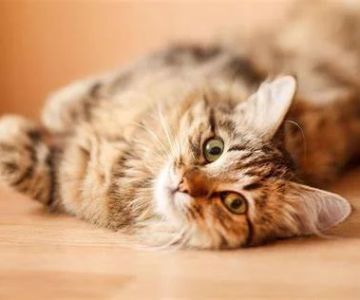
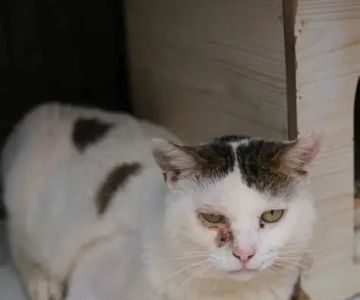
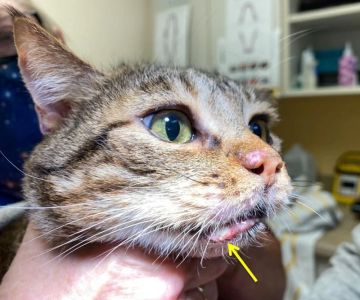
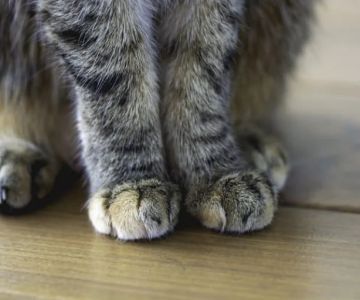


 Plumtrees Animal Hospital: Baff Wesley A DVM4.0 (7 reviews)
Plumtrees Animal Hospital: Baff Wesley A DVM4.0 (7 reviews) Doggie Bag4.0 (115 reviews)
Doggie Bag4.0 (115 reviews)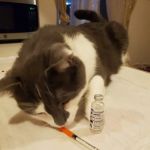 Granada Veterinary Clinic4.0 (157 reviews)
Granada Veterinary Clinic4.0 (157 reviews) Atlantic Aquarium4.0 (52 reviews)
Atlantic Aquarium4.0 (52 reviews) Hatfield Veterinary Clinic4.0 (136 reviews)
Hatfield Veterinary Clinic4.0 (136 reviews) Crescenta Valley Koi0.0 (0 reviews)
Crescenta Valley Koi0.0 (0 reviews) The Benefits of Adopting a Senior Pet vs. a Puppy or Kitten – Why Older Pets Make Great Companions
The Benefits of Adopting a Senior Pet vs. a Puppy or Kitten – Why Older Pets Make Great Companions How to Keep Your Kitten from Eating Poisonous Bugs – Omnia Pet
How to Keep Your Kitten from Eating Poisonous Bugs – Omnia Pet Why Do Kittens Like to Play in Empty Boxes? Uncover the Fun and Fascination
Why Do Kittens Like to Play in Empty Boxes? Uncover the Fun and Fascination How to Keep Your Kitten from Falling Off Balconies
How to Keep Your Kitten from Falling Off Balconies How to Stop Your Cat from Chewing on Electrical Cords | Omnia Pet
How to Stop Your Cat from Chewing on Electrical Cords | Omnia Pet The Best Music for Cats to Reduce Anxiety When Home Alone
The Best Music for Cats to Reduce Anxiety When Home Alone